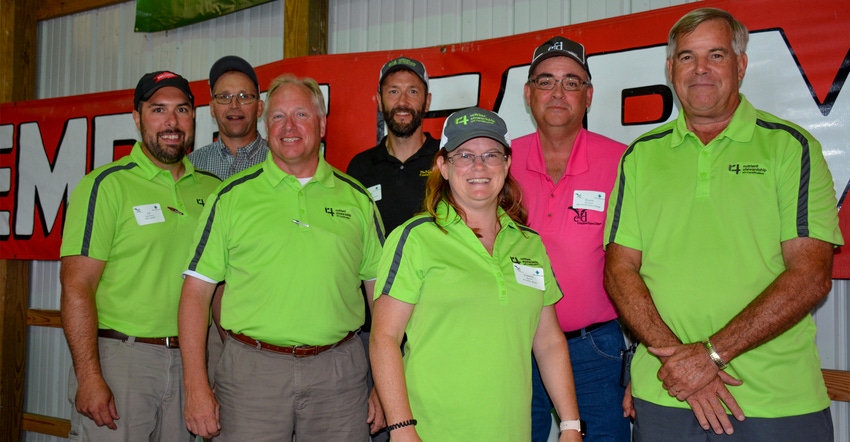
In education, the three Rs stand for reading, writing and arithmetic.
In agriculture, it's the four Rs of nutrient management: right nutrient, right rate, right time and in the right place.
And in a region where farms are so close to people and water resources, managing those nutrients can sometimes lead to strange bedfellows working together.
That's what's happening in New York as the New York State Agri-Business Association, the Fertilizer Institute and The Nature Conservancy have teamed up to launch the 4R New York Nutrient Stewardship Certification Program.
The program encourages ag retailers, service providers and other certification professionals to adopt proven practices through the 4Rs concept of nutrient management.
Gregg Sargis, director of ecological management for The Nature Conservancy, says his group wants to reach out to farmers to better understand ag's role in water quality.
"We're looking to work with farmers in the interests of water quality and carbon sequestration … and how that translates on the ground," he says.
Jeanette Marvin, administrator of the New York State Agri-Business Association, says the program is modeled after a similar program in Ohio and the national 4R Nutrient Stewardship program.
"This is an industry-led and industry-funded effort," Marvin says. "We are really pushing into the idea of prescription agriculture, but there's a lot of simpler solutions we can push forward also, including the use of cover crops."
How it works
Marvin says the program is open to service providers, seed dealers, and crop advisers and consultants who apply and pay an application fee. They would then have to abide by written standards developed by Cornell, the Natural Resources Conservation Service and other organizations to encourage the proper use of fertilizers and other chemicals, and to encourage more best management practices on farms.
Goals set in the 4R group's standards include:
• Maximize crop uptake of nutrients and minimize nutrient losses.
• Create long-term positive impacts on water bodies associated with agricultural production areas, including the reduction of eutrophication and incidence of harmful algal blooms, and to help meet water quality standards.
• Encourage sharing of the most up-to-date information about responsible nutrient stewardship with nutrient service providers and growers.
• Help the agricultural sector adapt new research and technology in nutrient stewardship.
Marvin says a program like this is needed as many farmers are in the Chesapeake Bay watershed, which is already under intense scrutiny from the federal government, and farm near Lake Ontario.
"We've been keeping a close eye on Lake Ontario and the algal blooms that have occurred there," Marvin says.
Mandatory auditing
To keep the 4R certification, service providers must go through an independent third-party audit to make sure they are providing proper assistance to farmers and are abiding by the program's standards. 4R certifications are good for three years.
John Uveges, farm seed business manager for Seedway in Hall, N.Y., says he has been surprised by the overwhelming response from the agribusiness sector thus far.
"Instead of having to push it, it's been running to keep up ahead of it," he says. "It demonstrates the interest the industry has in being good stewards."
The program will be administered by the New York Stewardship Council.
About the Author(s)
You May Also Like






